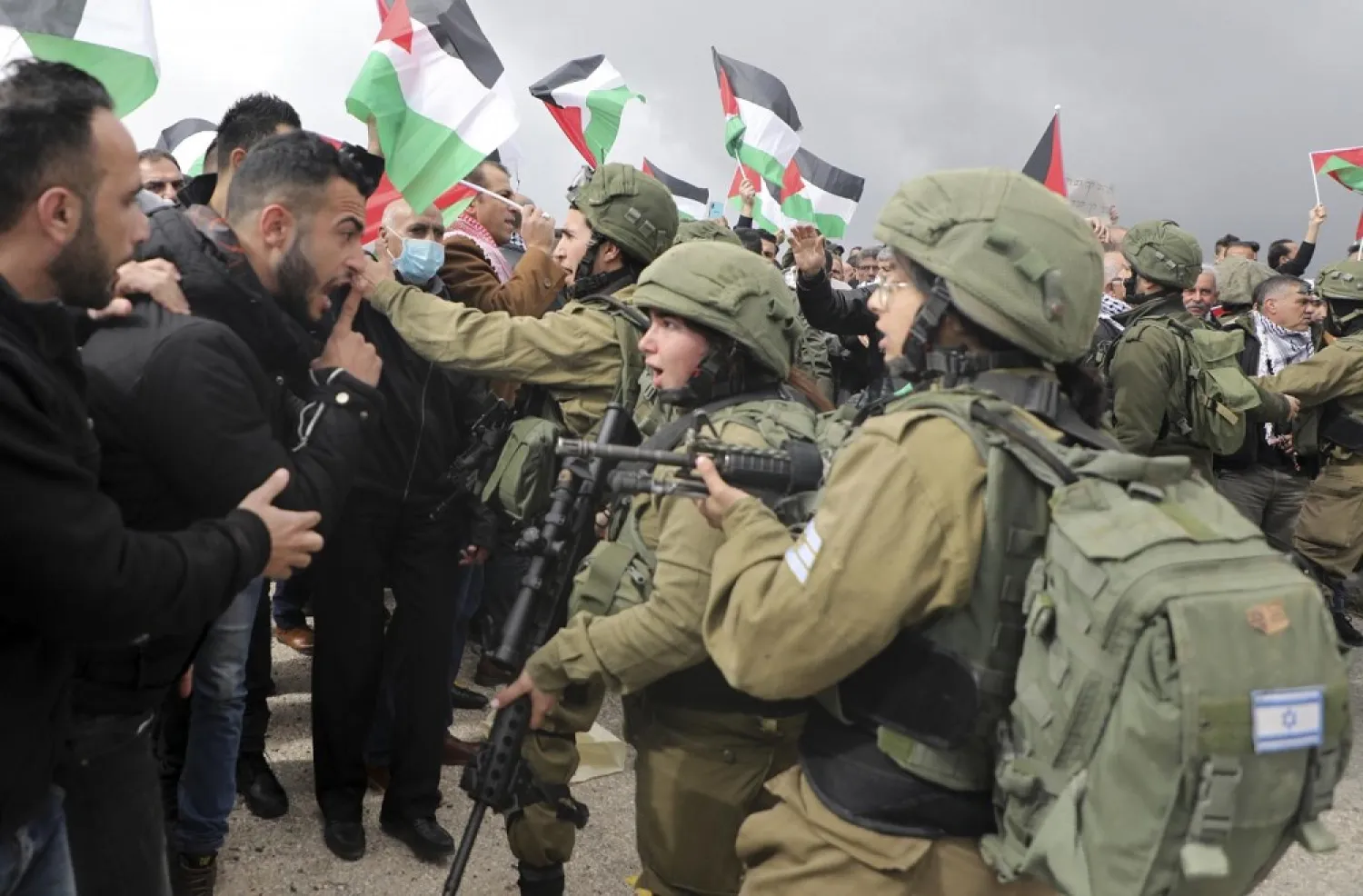Palestinians protested Wednesday against President Donald Trump's controversial peace plan that gives Israel a US green light to annex key parts of the occupied West Bank.
The protests, including isolated clashes, underscored the depth of frustration with a proposal seen as overwhelmingly supportive of Israeli objectives that was drafted with no Palestinian input.
Trump, who unveiled the plan on Tuesday at the White House standing alongside Israel's Prime Minister Benjamin Netanyahu with no Palestinian representatives on hand, said his initiative could succeed where others had failed.
But it grants Israel much of what it has sought in decades of international diplomacy, namely control over Jerusalem as its "undivided" capital, rather than a city to share with the Palestinians.
It also offers US approval for Israel to annex the strategically crucial Jordan Valley -- which accounts for around 30 percent of the West Bank -- as well as other Jewish settlements in the territory.
Those terms have been roundly rejected by Palestinian leaders.
Palestinian president Mahmud Abbas said the deal should be confined "to the dustbin of history".
Hamas, the movement that controls the Gaza Strip, said it could never accept anything short of Jerusalem as capital of a future state of Palestine.
US Secretary of State Mike Pompeo urged the Palestinians to "come up with a counter offer".
"I know the Israelis would be prepared to sit down and negotiate on the basis of the vision that the president laid out," Pompeo said, as he headed to Britain on a five-nation tour.
Teargas
In the West Bank city of Bethlehem, demonstrators threw rocks at Israeli border guards who responded by firing tear gas.
Three protesters were hospitalized after being hit by Israeli fire in clashes near Ramallah in the central West Bank, the Palestinian health ministry said.
In Khan Yunis in southern Gaza, protesters set tires alight, while others hoisted banners vowing they were "united against the deal of the century", in a jibe against Trump's proposals.
Trump's plan foresees the creation of a "contiguous" Palestinian state but under strict conditions, including a requirement that it be "demilitarized".
The Palestinians would only be allowed to declare a capital in outer parts of east Jerusalem beyond an Israeli security wall.
Welcomed in Israel
Those terms were warmly received by some in Israel.
"History knocked on our door last night and gave us a unique opportunity to apply Israeli law on all of the settlements in Judea (and) Samaria," said Israel's rightwing Defense Minister Naftali Bennett, using the Israeli term for the West Bank.
The Blue and White party led by Benny Gantz, Netanyahu's main election rival in March 2 polls, embraced Trump's proposals as offering "a strong, viable basis for advancing a peace accord with the Palestinians".
But the head of Israel's leftwing coalition Labor-Gesher-Meretz, Amir Peretz, condemned Netanyahu's expected move towards "unilateral annexations".
Meanwhile, on the streets of Tel Aviv, some residents voiced concern that Trump had paid no attention to what the Palestinians actually want.
"It sounds like an excessive implementation of Israel's ambitions, with harsh, aggressive ignorance of Palestinian ambitions," said Tel Aviv resident Uri, according to AFP.









